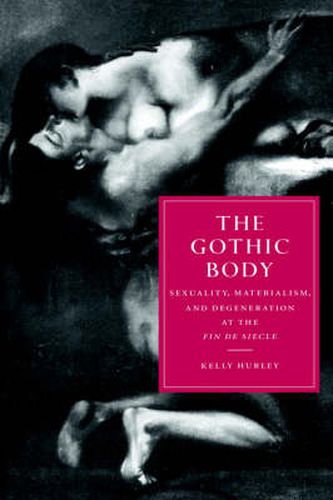Readings Newsletter
Become a Readings Member to make your shopping experience even easier.
Sign in or sign up for free!
You’re not far away from qualifying for FREE standard shipping within Australia
You’ve qualified for FREE standard shipping within Australia
The cart is loading…






Readers familiar with Dracula and The Strange Case of Dr Jekyll and Mr Hyde may not know that dozens of equally remarkable Gothic texts were written in Great Britain at the end of the nineteenth-century. This book accounts for the resurgence of Gothic, and its immense popularity, during the British fin de siecle. Kelly Hurley explores a key scenario that haunts the genre: the loss of a unified and stable human identity, and the emergence of a chaotic and transformative ‘abhuman’ identity in its place. She shows that such representations of Gothic bodies are strongly indebted to those found in nineteenth-century biology and social medicine, evolutionism, criminal anthropology, and degeneration theory. Gothic is revealed as a highly productive and speculative genre, standing in opportunistic relation to nineteenth-century scientific and social theories.
$9.00 standard shipping within Australia
FREE standard shipping within Australia for orders over $100.00
Express & International shipping calculated at checkout
Readers familiar with Dracula and The Strange Case of Dr Jekyll and Mr Hyde may not know that dozens of equally remarkable Gothic texts were written in Great Britain at the end of the nineteenth-century. This book accounts for the resurgence of Gothic, and its immense popularity, during the British fin de siecle. Kelly Hurley explores a key scenario that haunts the genre: the loss of a unified and stable human identity, and the emergence of a chaotic and transformative ‘abhuman’ identity in its place. She shows that such representations of Gothic bodies are strongly indebted to those found in nineteenth-century biology and social medicine, evolutionism, criminal anthropology, and degeneration theory. Gothic is revealed as a highly productive and speculative genre, standing in opportunistic relation to nineteenth-century scientific and social theories.